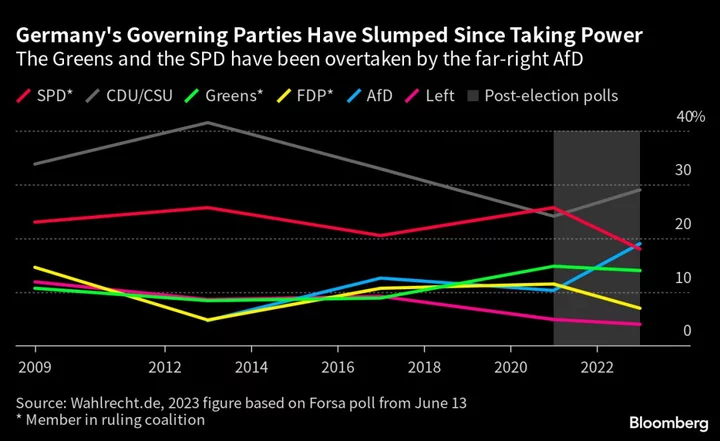
'Orca wars': Why are killer whales attacking boats, and are they really rising up?
A spate of recent orca attacks has fuelled concern among scientists in recent weeks for animal safety, and even led to speculation that the ocean mammal could be trying to rise up against humans. But are they? In a new trend – dubbed "orca wars" by some on social media – a population of orcas has recently been smashing into boats off the coast of Portugal and near the Strait of Gibraltar at a rate of nearly one per day. That's according to researcher Rui Alves, who collects data on the attacks. In June alone there have been 12 orca attacks on boats and 12 other encounters. In May, there were 21 attacks, says his website, orca.pt. Sign up to our free Indy100 weekly newsletter Of course, social media reacted just how you might expect: by picking a team. One person tweeted: “If you an orca whale reading this, i am on your side. I have always been on your side.” Researchers don’t know exactly why this is happening, but there are two main hypotheses. The first is that killer whales – highly intelligent and social creatures – have invented a new fad, something that younger members of orca pods have been known to do. The other, more concerning possibility, is that it is a response to trauma involving a boat, Dr Alfredo López Fernandez, of Grupo Trabajo Orca Atlántica (GTOA, or Atlantic Orca Working Group), told the Guardian. “[It could be a] response to an adverse situation; one or several individuals have had a bad experience and are trying to stop the boat so as not to repeat it. This behaviour coincides with the profile of adults,” he said. If it is the latter, there is even one key suspect in starting the trend: a white orca called Gladis Blanca (or White Gladis), who is thought to have had a bad collision with a vessel at some stage. Other adult orcas in the region also have injuries consistent with boat collisions or entanglement, López added. “All this has to make us reflect on the fact that human activities, even in an indirect way, are at the origin of this behaviour,” he said. In fact, the attacks are not such a new thing. Back in 2020, a group of orcas were seen pursuing sailboats in the region, in an act of aggression that was previously thought to be extremely rare. Since then, it has grown more and more common. The orcas have tended to ram into the hulls of boats, but they have also been seen scraping them with their teeth. The attacks sometimes snap the boats’ rudders, leaving sailors unable to navigate. In three cases, the animals damaged a boat so badly that it sank. However, for all the concern that the orcas might be getting, erm, orca-nised, scientists remain concerned that the attacks could come back to bite the ocean mammals eventually. The Iberian orca subpopulation is considered critically endangered, according to GTOA, with only 39 animals the last time a full census was carried out in 2011. López and his colleagues fear boaters may lash out, or that the orcas might hurt themselves in the process of ramming the vessels. Either way, it doesn’t look like the attacks will stop any time soon. So who knows: maybe the ocean world really is rising up… Have your say in our news democracy. Click the upvote icon at the top of the page to help raise this article through the indy100 rankings.
2023-06-19 16:03

Polestar to Form $200 Million Software JV With Geely Firm to Keep Up in China
Polestar Automotive Holding UK Plc is setting up a $200 million software joint venture with tech company Xingji
2023-06-19 15:50

Alibaba founder Jack Ma gives first class as visiting professor at University of Tokyo as he retreats from tech empire
Alibaba founder Jack Ma gave a lecture as a visiting professor to the University of Tokyo, as the high-profile Chinese entrepreneur retreats further from his business empire following Beijing's regulatory crackdown.
2023-06-19 14:14

Cutting social media use to 30 minutes per day found to significantly reduce anxiety and loneliness
Scientists have found that students who cut social media use to 30 minutes per day can see significant reduction in anxiety, depression, and loneliness, an advance that can lead to better mental health interventions. A growing body of research in recent years has shown that an increase in social media use among young people is linked to their declining mental health. Researchers at Iowa State University assessed this link further in a two-week experiment with 230 college students. Half of the participants were asked to limit their social media usage to 30 minutes a day, and received automated, daily reminders. The study, published in the journal Technology, Mind, and Behavior, found that this group of participants scored significantly lower for anxiety, depression, loneliness and fear of missing out at the end of the experiment compared to the control group. These participants also appeared to have a brighter outlook on life, scoring higher for “positive affect,” which the researchers describe as “the tendency to experience positive emotions described with words such as ‘excited’ and ‘proud.’” “It surprised me to find that participants’ well-being did not only improve in one dimension but in all of them. I was excited to learn that such a simple intervention of sending a daily reminder can motivate people to change their behavior and improve their social media habits,” study co-author Ella Faulhaber said. The psychological benefits from cutting back on social media was found to extend even to participants who sometimes exceeded the 30-minute time limit. Scientists suggest it is not about being perfect, but putting in the effort that makes the difference. While previous research has assessed the effects of limiting or abstaining from social media, many of the interventions recommended in these studies require heavy supervision and deleting apps or using special applications to block or limit social media use. “When a perceived freedom is taken away, we start resisting,” says Douglas A. Gentile, another author of the study, who adds that eliminating social media completely may take away some of its benefits like connecting with friends and family. For those looking to cut back on social media use, scientists recommend setting a timer to see how much time one spends on social media. “Recognize that it’s not easy to stick to a time limit. Social media apps are designed to keep you engaged,” researchers said in a statement. However, they urge people not to give up as limiting social media use over time has real benefits for daily life. “We live in an age of anxiety. Lots of indicators show that anxiety, depression, loneliness are all getting worse, and that can make us feel helpless. But there are things we can do to manage our mental health and well-being,” Dr Gentile said. Read More TikTok allowed millions of people to see Canadian ‘helicopter’ wildfire conspiracies Reddit hit by outage as fight over its future escalates Facebook, Instagram and WhatsApp all stop working Is your WhatsApp group making you anxious? Don’t worry – you’re not alone From a post-truth world to a post-trust world Why suicides among young women are rising at the fastest rate ever
2023-06-19 14:06

German Greens Are in Crisis Like the Rest of Scholz’s Coalition
Germany’s Greens attacked their highest-ranking cabinet ministers at a party convention near Frankfurt this weekend. Nominally, the subject
2023-06-19 12:00

Luminar CEO Austin Russell Doesn’t Understand Why His Stock Is Down. We Do.
The head of the lidar start-up isn't happy with the performance of his company's stock. Shares are down 86% from record highs reached in December 2020.
2023-06-19 09:01

TikTok allowed millions of people to see Canadian ‘helicopter’ wildfire conspiracies before taking down videos
More than 400 wildfires are raging across Canada, and misinformation about the blazes is spreading as well, particularly on TikTok. As Media Matters for America (MMFA) noted in a recent analysis, videos on TikTok claiming the fires were started intentionally by helicopters, arsonists, and “directed energy weapons” have garnered millions of views this month, with the false ideas in these videos then spreading to other social media platforms. Only a few of the most viral false videos have been taken down, the analysis notes. Further scrutiny of such claims provides easy evidence to the contrary, with Canadian officials attributing the fires to a combination of lightning strikes, human accidents, and dry, climate crisis-fueled conditions across the country. “We are already seeing one of the worst wildfire seasons on record,” Steven Guilbeault, Minister of Environment and Climate Change, said in a statement earlier this month. “We must prepare for a long summer.” Other videos about the fires featured clips from a controlled burn by fire officials, as well as what was actually a 2015 wildfire, MMFA found. The Independent has contacted TikTok for comment. Tens of thousands of people have been evacuated from their homes including large numbers in Quebec, Alberta and British Columbia. Hundreds of firefighters have arrived from countries like Australia, New Zealand, the US, South Africa, Chile, Costa Rica and France to assist the exhausted Canadian crews. As The Independent has previously reported, misinformation spreads quickly on TikTok during ongoing disasters, thanks in part to public distrust of government officials and an increasingly anti-science bent in US politics. “Social media can be helpful. It alerts people to a situation. It’s a way for widespread dissemination,” Dr Erin Haynes, professor of preventive medicine and environmental health at the University of Kentucky told The Independent in March in the wake of the Ohio train derailment disaster. “But because of that it allows widespread dissemination of false information, so it can go both ways. You have to be very cautious when using social media. Fact-check, find the source of that information.” Read More Canadian wildfire smoke gives Minnesota city the worst air in the US Satellites capture Canadian wildfire smoke pouring into US Midwest Wildfire smoke from Canada might be a problem ‘all summer’
2023-06-19 06:08

Can you find which letter 'G' is written correctly? Most people can't
We use letters every day of our lives, but apparently, there's one lowercase letter that we do not recognise. Psychologists at Johns Hopkins University have discovered that most people aren't aware that there are two types of the lowercase letter g. One of them is the open tail 'g' which most of us would have written out by hand with its image comparable to "a loop with a fishhook hanging from it. Sign up to our free Indy100 weekly newsletter Then, there is the loop tail 'g' which appears in print form e.g. books and newspapers as well as in Serif fonts such as Times New Roman and Calibri - we've all seen this type of letter millions of times, but it seems remembering it is an entirely different challenge altogether. There were 38 volunteers in the study published by the Journal of Experimental Psychology: Human Perception & Performance and they were asked to list letters that they thought had two variations in print. In the first experiment, "most participants failed to recall the existence of looptail g" while only two people could write looptail g accurately. "They don't entirely know what this letter looks like, even though they can read it," co-author Gali Ellenblum said. Next participants were asked to look for examples of the looptail g in the text and were asked to reproduce this letter style after this and in the end, only one person could do this while half the group wrote an open tail g. Finally, those taking part in the study were asked to identify the letter g in a multiple-choice test with four options of the letter where seven out of 25 managed to do this correctly. So how can we know a letter but not recognised it? It could be to do with the fact we are not taught to write this kind of 'g," according to Michael McCloskey, senior author of the paper. "What we think may be happening here is that we learn the shapes of most letters in part because we have to write them in school. 'Looptail g' is something we're never taught to write, so we may not learn its shape as well," he said. "More generally, our findings raise questions about the conditions under which massive exposure does, and does not, yield detailed, accurate, accessible knowledge." In a play-along video on John Hopkin's YouTube channel, four different g's labelled from one to four appear on the screen where it asked viewers to guess which is the correct looptail 'g'. (*Spoiler ahead*) The correct answer is number 3. Meanwhile, this study has also led research to question the impact that writing less and using more devices has on our reading abilities. "What about children who are just learning to read? Do they have a little bit more trouble with this form of g because they haven't been forced to pay attention to it and write it?" McCloskey said. "That's something we don't really know. Our findings give us an intriguing way of looking at questions about the importance of writing for reading..." Have your say in our news democracy. Click the upvote icon at the top of the page to help raise this article through the indy100 rankings.
2023-06-18 23:28

Trillion-Dollar Answers to Tackle a Fast Heating World
Each week on the Zero podcast, Bloomberg Green’s Akshat Rathi invites guests working at the forefront of climate
2023-06-18 18:00

Score a refurbished MacBook Air for just $250
TL;DR: As of June 17, you can get a refurbished 13" MacBook Air for just
2023-06-17 17:00

Meta lowers the minimum age for its Quest headsets from 13 to 10
Facebook-parent Meta plans to lower the minimum age for its virtual reality headsets from 13 years old to 10 years old, despite pressure from lawmakers not to market its VR services to younger users.
2023-06-17 04:50

Meta Lowers Age Requirement for Quest VR Headsets to Allow Preteens
Mark Zuckerberg will let kids as young as 10 years old use his company’s VR
2023-06-17 04:13
You Might Like...

Battery breakthrough brings ‘unprecedented performance’ to next-gen cells

Amazon has deep bench of defense lawyers to fight US FTC lawsuit

Nvidia Still Leads AMD, Intel In the AI Chips Race. How It Plans to Stay Ahead.

Stream Deck Goes Free – Elgato Announces Groundbreaking Changes to Mobile App

Meta is being sued by 41 states over ‘addictive’ content allegedly harmful to children

For $3,000 You Too Might Snag a Full-Time Work-From-Home Job

Discovery of '2000-year-old computer' leaves scientists baffled

Crypto Exchange Bullish Plans to Apply for License in Hong Kong
